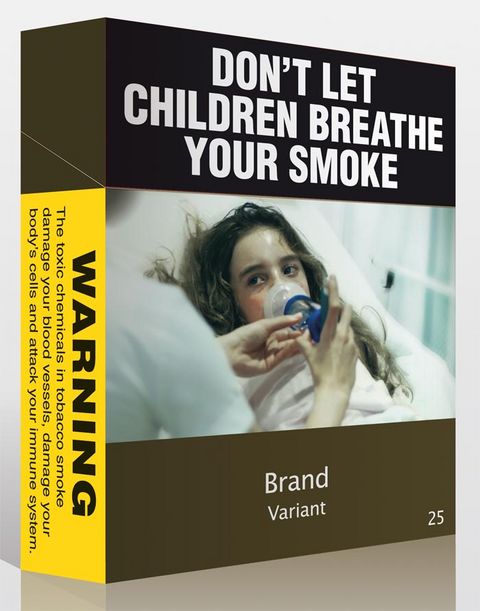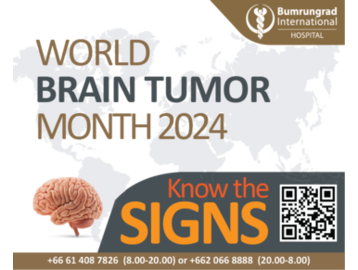Members
THE ERA OF PLAIN PACKAGING IS COMING IN THAILAND


The latest legislative developments in the tobacco sector in Thailand are worrying the tobacco industry but also the food and beverage sectors as similar regulations may follow.
The content of the draft Thai Tobacco Product Control Act ("TPCA") regulating the packaging and labeling of tobacco products has first been introduced in 2010 under a different Bill named draft Tobacco Consumption Control Act (or “TCCA”), and shows the ever growing restrictions imposed on the tobacco industry in Thailand.
The increased size of shock-pictures and health warning statements covering the package of cigarettes is one example. Compared with its neighbors, Thailand is leading the way since 2014 with 85% of space coverage (previously, 55%).

Key provisions of the draft TPCA
• Increase of the minimum age for the purchase of cigarettes to 20 years (instead of 18 years currently) in an attempt to reduce youth smoking (Article 26);
• Ban of the sale of individual cigarettes and in a number smaller than 20 for the purpose of limiting access to, and discouraging purchase of cigarettes (Article 39);
• Tobacco product sales restrictions such as prohibition of cigarette vending machines (Article 27);
• Broader definition of tobacco products to cover any item containing nicotine, including hookahs and electronic cigarettes (Article 4);
• Stricter rules on advertising of tobacco products such as prohibition of the display of the names or marks of tobacco products, or of the manufacturer or importer, on tobacco products or non-tobacco products and any logo or symbol that might cause the public to understand that such names or marks are the names or marks of the tobacco products or of the manufacturer or importer, prohibition of sponsorship and merchandising as forms of indirect advertisement (Articles 30-36);
• Obligation for manufacturers to disclose all ingredients in tobacco products to the MOPH for the purpose of obtaining the Certificate of Notification of the list of components of tobacco products, a necessary document for the sale of tobacco products in Thailand (Article 37). Since the list would be published, this disclosure requirement would jeopardize trade secret protection that may be granted to the composition of tobacco products (one condition of the protection being to remain secret);
• Obligation for manufacturers and importers to disclose the volumes of produced and imported tobacco products, marketing costs and incomes generated from the sale of tobacco products in Thailand and any other relevant information (Article 40);
• Open door to the introduction of plain packaging for cigarettes by allowing the MOPH to impose the criteria and features of tobacco products’ packaging (size, color, symbol, label, trademark, pictures and messages (Article 38- The initial disputed provision stating that « The law on intellectual property shall not apply to the display of the Package under this Section” has been deleted). “Plain packaging” – also known as homogenous, generic or standardized packaging- refers to the appearance of all tobacco packages in a standardized manner: the cigarette packaging is a single color and the brand name is reproduced in a standard font, size and location.
Public Health vs. Private Rights: the battle of the Giants
The Thai Ministry of Public Health is defending the new text in the name of public health.
For the tobacco industry, this new law (and plain packaging laws in general) are violating intellectual property rights and international treaties, encouraging illicit trade and making it difficult for consumers to identify the product’s genuine source.
The Thai Ministry of Commerce is trying to conciliate the interests of both sides: whilst aiming to discourage, and help consumers quit smoking, the new Bill should not affect the rights of the trademark owners and trade secrets as protected under the Thai Trademark and Trade Secret Acts and should comply with the international agreements regarding trade and intellectual property.
These concerns are shared by some WTO Member Countries such as Mexico, Honduras, the European Union, China, the United States of America and Brazil which raised a series of questions to the Thai representatives during the last WTO’s Trade Policy Review in November 2015. When asked how to ensure a fair competition environment for the sale of tobacco products, what would be the impact on trademarks currently used on tobacco products or whether similar plain packaging regulations will be extended to alcoholic beverages, Thailand reaffirmed its commitment to the WTO Agreement on Trade-Related Aspects of Intellectual Property Rights and public health policy.
Current legislative process: 2017, the turning point for plain packaging in Thailand?
The Bill has been approved by the National Legislative Assembly on March 3, 2017 and is now awaiting signature by the King Maha Vajiralongkorn Bodindradebayavarangkun for enactment and publication in the Governement Gazette which is expected early May 2017.
The WTO ruling in the disputes relating to Australia’s tobacco plain packaging measure has been postponed to May 2017. A decision in favor of the Australian government will likely pave the road for similar regulations in Thailand. To date, plain packaging is effective in the United Kingdom since May 2016 and in France since January 1, 2017 (for retailers, manufacturers had to comply by May 2016).
Mrs. Maturos Piyachotisukij, Head of Patent Department, Vidon & Partners
Ms. Noemie Sancelme, Coordinator/Manager of Overseas Department, Vidon & Partners
Ms. Mathilde Tachon, Consultant, Vidon & Partners
They can be contacted at vidonbangkok@vidon.com
@Picture credit to the organization The Campaign for Tobacco-Free Kids.


